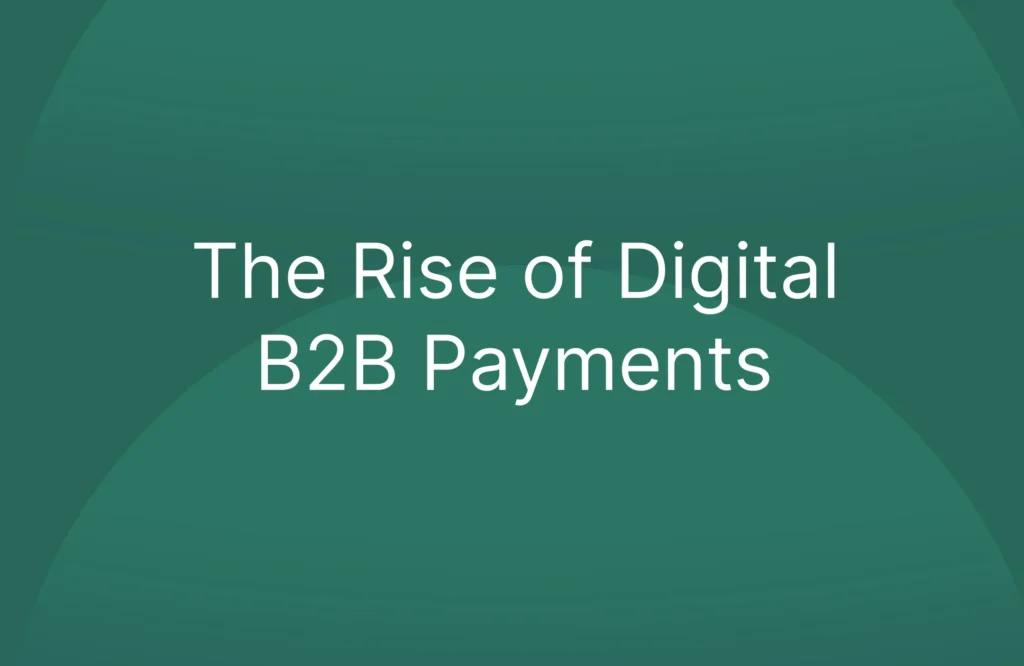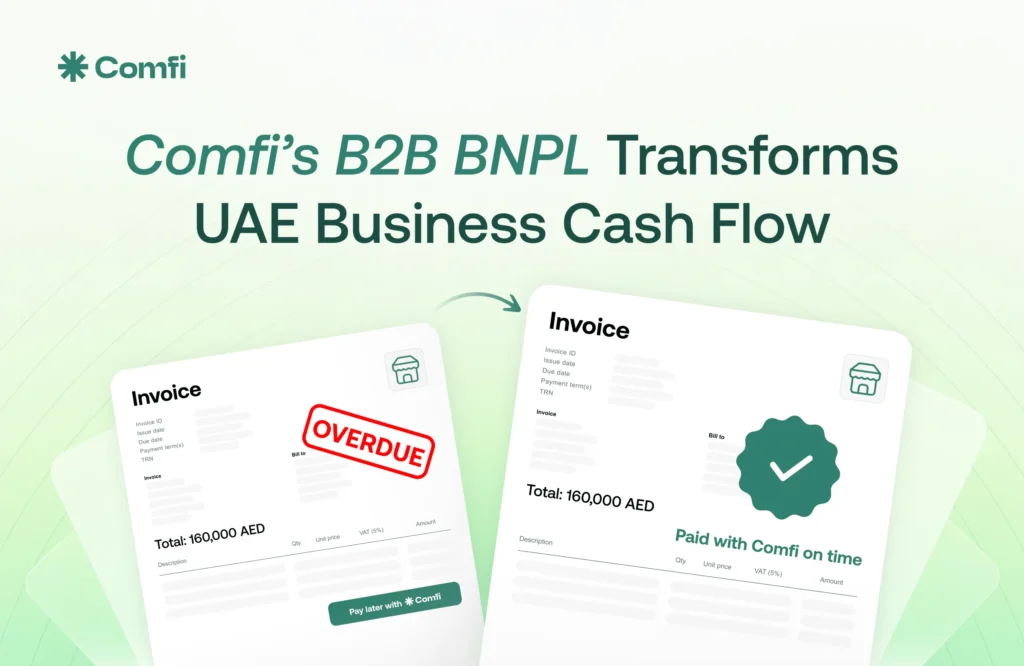Digital B2B payments are becoming an essential component of modern business operations. These payments, which involve the electronic transfer of funds between businesses, offer a range of advantages over traditional methods. As companies seek to improve efficiency, security, and speed in their financial transactions, digital solutions are increasingly coming to the forefront. This article explores the concept of digital B2B payments, their benefits, the challenges they present, and what the future holds for this innovative approach to business finance.
Definition and Key Features of Digital B2B Payments
Digital B2B payments is the electronic processing of transactions between businesses using digital platforms and technologies. These payments are characterized by their speed, security, and efficiency, which make them an attractive alternative to traditional payment methods such as checks and wire transfers. Key features of digital B2B payments include:
- Electronic Invoicing: This process involves the digital creation, delivery, and storage of invoices, which reduces the need for paper and manual processing.
- Automated Clearing House (ACH) Transfers: ACH transfers are electronic payments that are processed through the ACH network, offering a cost-effective and reliable method for transferring funds.
- Real-Time Payments (RTP): RTP systems enable instant transfer of funds between bank accounts, providing immediate availability of funds and reducing settlement times.
- Digital Wallets: These are electronic devices or online services that allow businesses to make electronic transactions, store payment information securely, and manage multiple payment methods in one place.
- Blockchain-Based Payments: Utilizing blockchain technology, these payments offer enhanced security, transparency, and traceability, making them suitable for high-value and cross-border transactions.
Leading UAE B2B Payment Platform: Comfi.ai
Comfi’s B2B payment platform provides embedded finance solutions, allowing wholesalers and manufacturers to provide up to 90 days of credit to their B2B clients while receiving immediate payment.
Comfi’s solutions are designed for UAE-based businesses, enabling them to purchase from various suppliers with deferred payment terms, effectively bridging cash flow gaps.
Comfi works with suppliers in diverse industries, including but not limited to F&B, pharmaceuticals, medical supplies, spare parts, and chemicals. Some notable customers include KMTE Group, United Foods, Medikabazaar, and 64 Sec. We are Shariah-compliant and work in partnership with a local partner bank (FAB) to facilitate approvals and payments. Check the website at comfi.ai
Benefits of Digital B2B Payments for Businesses
Digital B2B payments offer numerous benefits that can significantly improve business operations. These advantages include:
Enhanced Efficiency
By automating and digitizing the payment process, businesses can reduce the time and effort required to manage transactions. This efficiency can lead to faster payment cycles and improved cash flow management, allowing companies to allocate resources more effectively.
Improved Security
Digital payments are generally more secure than traditional methods. Advanced encryption and authentication technologies help protect sensitive financial information from fraud and unauthorized access. Additionally, blockchain-based payments provide a transparent and tamper-proof record of transactions.
Cost Savings
Digital B2B payments can reduce the costs associated with processing and managing payments. Electronic invoicing and ACH transfers, for example, eliminate the need for paper checks and reduce administrative overhead. This can result in significant savings, especially for businesses that handle a large volume of transactions.
Better Cash Flow Management
With faster processing times and real-time payment capabilities, businesses can better manage their cash flow. Immediate availability of funds allows companies to meet their financial obligations promptly and take advantage of early payment discounts offered by suppliers.
Enhanced Record Keeping
Digital payments provide a clear and organized record of all transactions. This makes it easier for businesses to track payments, reconcile accounts, and generate financial reports. Enhanced record keeping also simplifies the auditing process and ensures compliance with regulatory requirements.
Challenges in Implementing Digital B2B Payments
While digital B2B payments offer numerous benefits, their implementation can present several challenges. Businesses must be prepared to address these obstacles to successfully transition to digital payment systems.
Integration with Existing Systems
One of the primary challenges is integrating new digital payment solutions with existing accounting and enterprise resource planning (ERP) systems. This requires careful planning and coordination to ensure seamless integration and avoid disruptions in business operations.
Technical Complexity
Implementing digital payment systems can be technically complex, especially for businesses with limited IT resources. It may require specialized knowledge and expertise to set up and maintain these systems, which can be a barrier for some companies.
Security Concerns
While digital payments are generally more secure than traditional methods, they are not immune to cyber threats. Businesses must invest in robust security measures to protect their digital payment systems from hacking, fraud, and other cyber risks.
Regulatory Compliance
Digital payment systems must comply with various regulatory requirements, which can vary by country and industry. Ensuring compliance can be challenging, especially for businesses that operate in multiple jurisdictions. Companies must stay informed about relevant regulations and implement necessary controls to remain compliant.
Adoption and Training
Transitioning to digital payments requires buy-in from all stakeholders, including employees, suppliers, and customers. Businesses must invest in training and change management initiatives to ensure smooth adoption of new payment systems. Resistance to change and lack of familiarity with digital tools can slow down the implementation process.
Industries That Can Benefit Most from Digital B2B Payments
While all industries can benefit from digital B2B payments, certain sectors stand to gain the most from adopting these technologies.
Manufacturing
The manufacturing industry often involves complex supply chains and high transaction volumes. Digital payments can streamline these processes, reduce administrative burdens, and improve cash flow management. Real-time payments and automated invoicing can help manufacturers manage their finances more effectively and maintain strong relationships with suppliers.
Retail and E-commerce
In the fast-paced world of retail and e-commerce, speed and efficiency are crucial. Digital B2B payments enable retailers to quickly pay suppliers, manage inventory levels, and respond to market demands. The ability to process payments in real-time can help retailers avoid stockouts and capitalize on sales opportunities.
Professional Services
Professional services firms, such as law firms, consulting agencies, and accounting firms, can benefit from digital payments by reducing the time and effort required to manage client invoices and payments. Electronic invoicing and ACH transfers can streamline billing processes, improve cash flow, and enhance client satisfaction.
Healthcare
The healthcare industry involves numerous transactions between providers, insurers, and suppliers. Digital payments can simplify these transactions, reduce administrative costs, and improve the efficiency of financial operations. Enhanced security features also help protect sensitive patient and financial information.
Logistics and Transportation
Logistics and transportation companies handle a high volume of transactions related to shipping, warehousing, and supply chain management. Digital payments can streamline these processes, reduce paperwork, and improve cash flow management. Real-time payments and blockchain-based solutions can also enhance transparency and traceability in the supply chain.
Steps for Getting Started with Digital B2B Payments
For businesses considering the transition to digital B2B payments, the following steps can help ensure a smooth implementation process:
Assess Your Current Payment Processes
Begin by evaluating your existing payment methods and identifying areas for improvement. Consider factors such as transaction volumes, processing times, costs, and security.
Choose the Right Digital Payment Solutions
Select digital payment solutions that align with your business needs and objectives. Consider factors such as ease of integration, scalability, security features, and support for multiple payment methods.
Integrate with Existing Systems
Work with your IT team or a technology partner to integrate the chosen digital payment solutions with your existing accounting and ERP systems. Ensure that the integration is seamless and does not disrupt business operations.
Train Your Team
Invest in training and change management initiatives to ensure that employees are familiar with the new digital payment systems. Provide ongoing support and resources to help them adapt to the new processes.
Communicate with Stakeholders
Inform suppliers, customers, and other stakeholders about the transition to digital payments. Clearly communicate the benefits and provide guidance on how to use the new payment methods.
Monitor and Optimize
Regularly review your digital payment processes to identify areas for improvement. Monitor key performance indicators such as processing times, costs, and security incidents. Continuously optimize your systems to ensure that they meet your business needs.
Future Trends and Developments in Digital B2B Payments
As technology continues to evolve, several trends and developments are likely to shape the future of digital B2B payments.
Increased Adoption of Real-Time Payments
Real-time payment systems are expected to become more widespread, offering businesses faster and more efficient ways to transfer funds. This trend will likely be driven by advances in technology and increasing demand for instant payment solutions.
Expansion of Blockchain-Based Payments
Blockchain technology is poised to play a significant role in the future of digital B2B payments. The transparency, security, and traceability offered by blockchain can help businesses streamline their financial transactions and reduce the risk of fraud.
Integration with Artificial Intelligence and Machine Learning
AI and ML technologies are expected to enhance digital payment systems by providing advanced fraud detection, process automation, and predictive analytics. These technologies can help businesses improve the efficiency and security of their payment processes.
Growth of Cross-Border Digital Payments
As global trade continues to expand, the demand for cross-border digital payment solutions will increase. Businesses will seek out payment methods that offer low-cost, fast, and secure international transactions.
Enhanced Security Measures
As cyber threats continue to evolve, businesses will need to invest in advanced security measures to protect their digital payment systems. This may include multi-factor authentication, encryption, and other technologies designed to safeguard sensitive financial information.
Conclusion
Digital B2B payments are changing the way businesses conduct transactions. By offering enhanced efficiency, improved security, and cost savings, these payment methods are becoming increasingly important in the modern business landscape. While challenges exist, businesses that successfully implement digital payment systems can reap significant benefits and gain a competitive edge.
As the future of digital B2B payments unfolds, we can expect to see continued innovation and adoption of new technologies. Real-time payments, blockchain, and AI are just a few of the trends that will shape the future of business transactions. By staying informed and embracing these advancements, businesses can optimize their financial operations and build stronger relationships with their partners.


